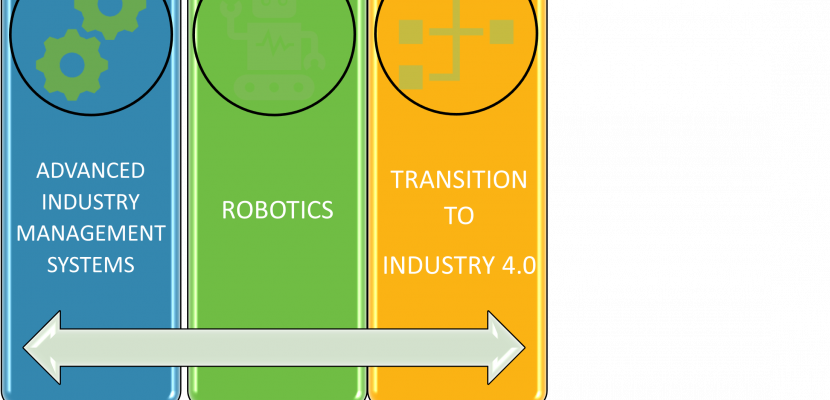
Future Key Skills and Competences for I4.0

About this good practice
Slovenia is known for being an industry-oriented country. The manufacturing sector employs around 200.000 workers across about 20.000 companies. Over 95% of Slovenian industrial companies are also classified as micro or SME companies. It is also worth noting that the industrial segment brings in about a third of sales revenue and about two-thirds of total exports in Slovenia. Even though the Slovenian industrial sector is relatively successful and the population of Slovenia is relatively well educated with a high level of skills and knowledge (especially among young people) the challenge lies in the demographical change, and the transition towards a highly competitive, digital and green economy.
With that in mind, the Strategic Research and Innovation Partnerships (SRIP) have incorporated human resources development in their action plans. The HR development in SRIP Factories of the Future has been implemented through the following methodology:
1. Definition of a set of competence elements and profiles for SRIP focus areas
2. Checking the relevance of competency needs with companies
3. Preparing forecasts of competency needs of selected profiles and descriptions of competency development levels
4. Assessing the importance of predicted competency needs
5. Analysing data and its interpretation for a final report
Expert opinion
Resources needed
EUR 560.000 euro, with 4 staff, a working group of 20+ stakeholders
Evidence of success
The main results is a list (constantly updated) of 12 future profiles with the addition of special and general competences.
The ranking of competencies included: professional/domain-specific competencies; power competencies, interpersonal competencies (EQ, communications skills, diversity and cultural intelligence); management and leadership competencies; and personal competencies (creativity, critical thinking, judgement and decision making, embracing change, active learning, growth mindset)
Potential for learning or transfer
The approach of identifying future key skills and competencies can be replicated through the proven methodology to any other centre or region developing skills within the I4.0 premise and its related sectors (materials, productions, circular economy), as it is based on the interdisciplinary participative approach. The results of the approach can also be replicated to relevant European manufacturing businesses and regions in the premise of I4.0 due to highly similar educational attainment levels. In this sense, both the approach and its results are replicable.
Further information
Good practice owner
You can contact the good practice owner below for more detailed information.
